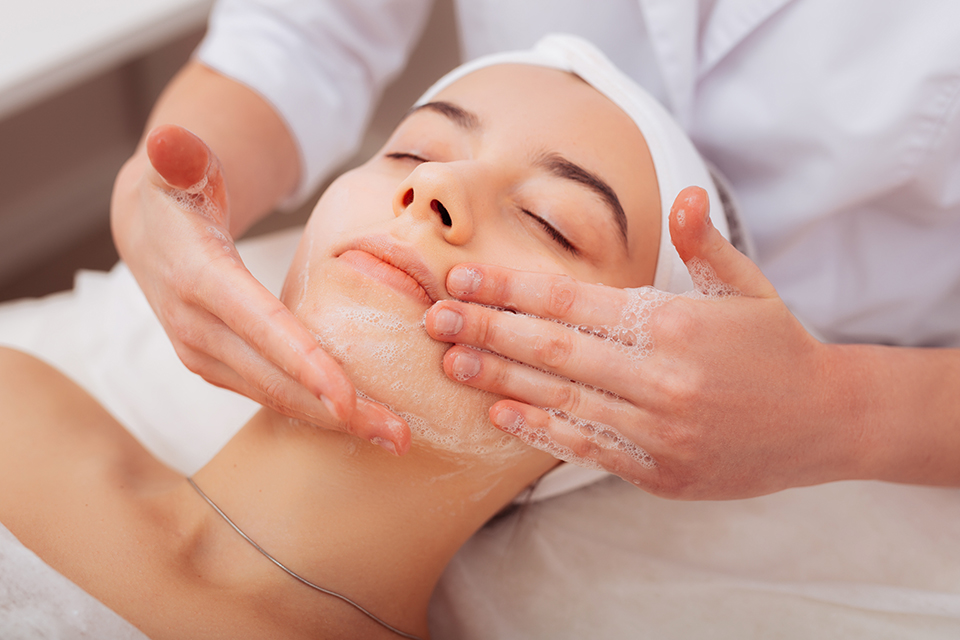Shedding skin is a natural part of the skin process: you get fresh, healthy new skin cells on a routine basis. This brightens skin tone, clears breakouts, and resurfaces texture. In a sense, it’s out with the old and in with the new.
While skin sheds naturally, exfoliating acids can help skin shed its dead cells faster and encourage healthy cell turnover, targeting a variety of skin concerns including acne, signs of sun damage, fine lines, and large pores. The result? Smoother, brighter skin with improved skin texture and tone.

How do exfoliating acids work?
While the term “exfoliation” may have you thinking about grainy scrubs and motorized brushes, chemical exfoliation works more naturally. Scrubs and brushes manually scrape away dull, dead skin cells, but acid exfoliants make skin cells shed more effectively on their own – without abrasion.
As we age or when we are stressed, the cell turnover process slow. But chemical exfoliants expedite the cell turnover process.
What are the different types of exfoliating acids?
Alpha hydroxy acid (AHA)
Multiple acids fall under this category, including glycolic acid, lactic acid and citric acid. Naturally derived or produced synthetically, these acids are found on their own or in combination across cleansers, toners, moisturizers, spot treatments, masks, and peels.
As a water-soluble acid, AHAs tend to be a better treatment for dull skin, hyperpigmentation and dark spots, along with fine lines and wrinkles because they mainly work on the surface of skin.
Beta hydroxy acid (BHA)
This is synonymous with salicylic acid: an oil-soluble exfoliant that gets deep into the pores to remove dead skin skills and excess debris. BHAs are an ideal solution for those with oily skin, helping unclog pores, blemishes, and blackheads.
How to choose the right acid for skin
If you’re using an acid for the first time, even just a product or an ingredient new to you, go slow. It’ll take some time to experiment and determine what’s right for you. You should expect results within two weeks to a month of consistent use, and a good rule of thumb is to ensure your acid delivers results without excessive redness or irritation.
While over the counter exfoliating acids can be incorporated into your weekly skincare routine, stronger concentrations are available as in-office peels, such as a glycolic peel. Since they are generally stronger and use a variety of acids, it’s always recommended for these to be applied by a trained esthetician.
At Visage Skin Care & Laser Center, a division of Robinson Facial Plastic Surgery, Heather Davis is our Licensed Assistant Laser Practitioner and an NCEA Certified Esthetician with over 20 years of experience. She has been voted “Best Medical Esthetician” 2022 & 2021 for Best of North Atlanta and voted “Best Esthetician” for 2 years in a row by the Atlanta community for Atlanta Bestself Magazine’s Best of Contest. She can help you select the right exfoliating acid treatment – over the counter or in-office peel – to meet your needs. Contact us for a consultation!



